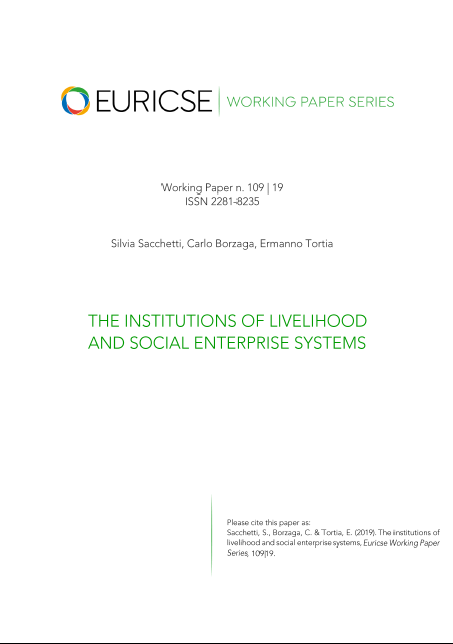WP 109 | 19 The institutions of livelihood and social enterprise system
Edited by: Silvia Sacchetti, Carlo Borzaga, Ermanno Tortia
This paper considers resource coordination in production systems featuring the presence of enterprises and organizations pursuing social, health-related, educational, cultural, and environmental aims, or social enterprises (SEs). The resource coordination problem is one of allocating and distributing resources towards these aims. By their very nature, these goals are very close to the Polanyian idea of the primacy of society over the self-regulating market. We ask what the specificities of organisations that pursue social aims are, and what coordination mechanisms underpin their production. The premise is that individuals are driven by plural motivations, including pro-social motivations besides self-interested ones, thus requiring a plurality of coordination mechanisms.
The paper suggests that SEs make principal use of cooperative pacts based on norms of reciprocity, but include also market and state-led coordination, both at organisational and systemic levels. We consider specific institutional solutions in support of cooperation and reciprocity. These are: combined rules on profit and asset distribution, surplus accumulation and redistribution, and multi-stakeholding.

